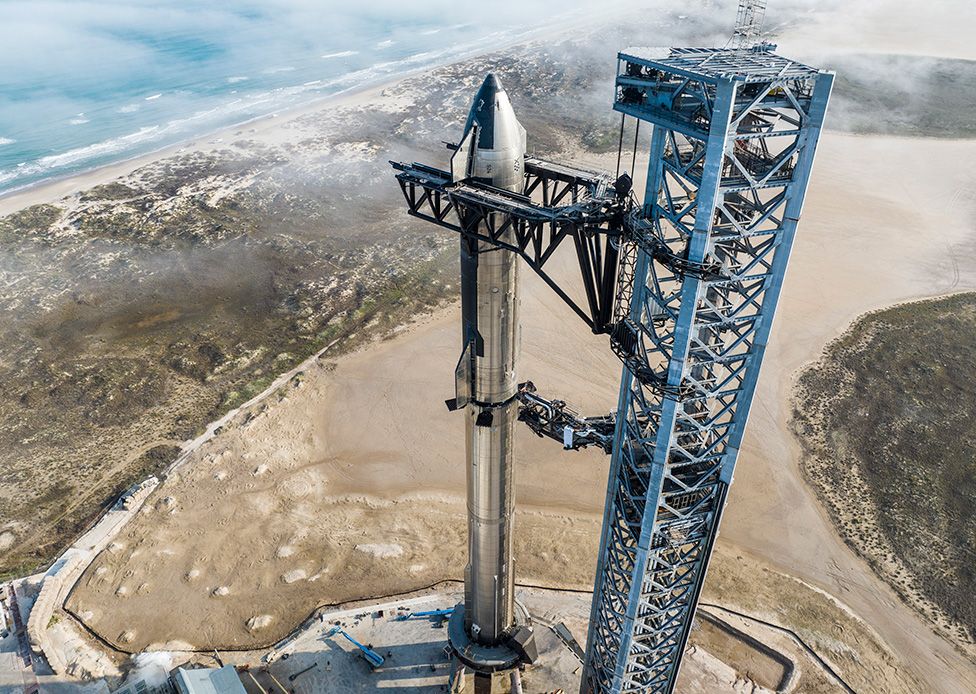
Due to a technical problem, SpaceX postponed the first test flight of Starship, its most powerful rocket yet built, on Monday. The rocket is intended to transport men to the Moon and, eventually, Mars and other locations in orbit. The enormous rocket’s liftoff was called off just minutes before the scheduled launch time due to a pressurization issue in the booster stage, according to SpaceX officials.
The launch will not take place for at least the next 48 hours, according to SpaceX. Starship was supposed to launch at 9 a.m. ET from Starbase, SpaceX’s spaceport in Boca Chica, Texas.
“Learned a lot today, now offloading propellant, retrying in a few days,” SpaceX CEO, Elon Musk, tweeted.
The Starship is made up of a 164-foot-tall spacecraft meant to carry crew and cargo, which rests atop a 230-foot-tall first-stage Super Heavy booster rocket. At 394 feet, the two-stage rocketship towers over the Statue of Liberty.
The enormous rocket represents a significant step forward in SpaceX’s goal of returning humans to the moon. However, SpaceX confronts huge obstacles in launching a spacecraft that, once launched, will be the most powerful rocket on the planet.
“Success is not what should be expected,” Musk told a private Twitter audience on Sunday night. He added that the best-case scenario would provide crucial data about how the vehicle ascends to space and how it will fly back to Earth.
“Probably, tomorrow will not be successful, he said. “It’s just a very fundamentally difficult thing.”
Super heavy rocket completes successful raptor engine test, preparing for risky first test flight
The 33 Raptor engines on the first-stage booster were successfully tested in February, but the Starship spacecraft and the Super Heavy rocket have never flown together. The purpose of the test flight is to evaluate their combined performance. Musk had previously warned that a delay was possible if everything did not go as planned.
“It’s a very risky flight,” he said. “It’s the first launch of a very complicated, gigantic rocket.
“There’s a million ways this rocket could fail,” Musk said. “We’re going to be very careful and if we see anything that gives us concern, we’ll postpone.”
NASA plans to utilize the Starship spaceship to take astronauts to the Moon in late 2025 as part of its Artemis III mission. This will be the first trip to the moon by humans since the Apollo program concluded in 1972.
